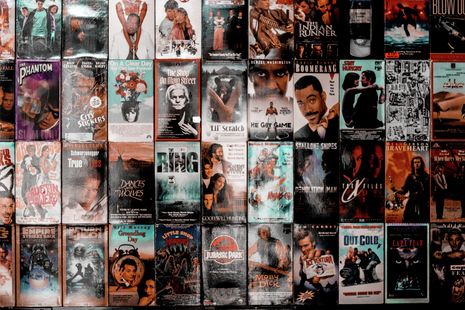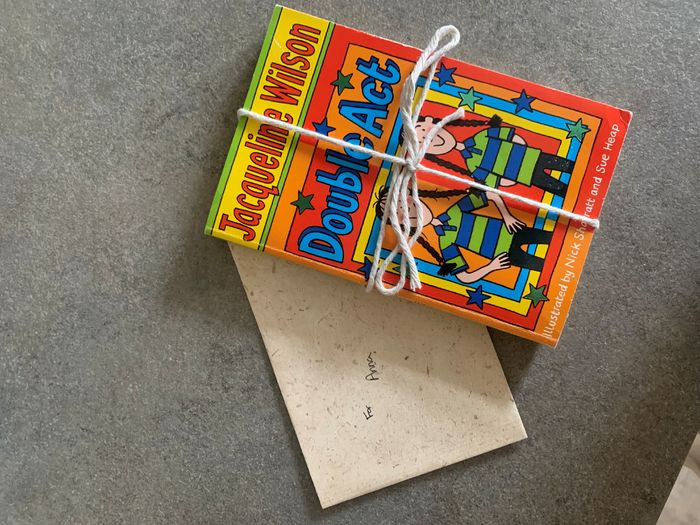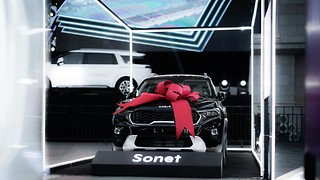Film vs. Book: The Age-Old Debate
In this article, Brianna Mitchell considers the successes and shortfalls of several well-loved film adaptations, comparing each of them to the original text

We live in a society that still adheres to the notion that books reign supreme. Even the most avid bibliophiles, like me, can say that this generalisation is wrong. After all, films wouldn’t continue to be produced if they weren’t enjoyed. Not all films are equal but there are certainly some mainstream films that we watched as kids that outshine the original text.
Let’s start with the most controversial: Harry Potter. In my mind there is no doubt that the films are better than the books. While I can hear the gasps of many adults whose kids started to read because of this series, I will continue to explain; when casting is at its finest, we can see a great narrative matched by characters who we become invested in personally. It isn’t that the books were bad, but if you have read the books and watched the films, it will be the image of the film characters that remains stuck in your head. That’s how you know the success of the films. Sorry J.K. Rowling — I think that Warner Bros. may have outdone you.
Harry Potter isn’t the only magical book to be given the film treatment. It should come as no surprise that the next film on the list is Roald Dahl’s Matilda — and I am referring to the original with Mara Wilson and Danny DeVito. You would be hard pressed to find a child who hasn’t had this as their favourite film at some point. We are able to see a child get herself out of a situation of neglect by using powers. What separates the film from the book is that Roald Dahl pitches the conclusion slightly wrong: Matilda loses her powers when she is finally happy. That’s a much bleaker message as far as I’m concerned; you are only able to have extraordinary abilities when your reality is intolerable. A bit dark for a children’s book.
“Both literature and film can be a gateway to discovering the other”
When speaking of a writing extraordinaire such as Roald Dahl, it is impossible to speak of just one title. Chocolate river. Need I say more? On a serious note, Charlie and the Chocolate Factory has two very good film adaptations which bring to life a factory that is so far from reality it simply doesn’t seem real until you have seen it on a screen. While I would absolutely encourage children to read the book, if given the choice, I’d rather watch the film again. Which one, you ask? Probably the original. Johnny Depps’ portrayal erred closer to being kooky than to the mysterious wonder of Wilder’s portrayal.
With the emergence of the popular young adult genre, it would be remiss not to mention at least one of its most successful narratives; the problem with John Green’s The Fault in our Stars is quite simply that the story does not live up to the hype that it received. And yet the film can be enjoyed as a result of its brilliant acting and its emphasis on the importance of hope when facing a bleak situation. When we read the book and hear of the death of Gus, it makes it difficult to continue reading because we are faced with the reality of cancer, whereas the film manages to keep a greater sense of fulfilment because Hazel managed to enjoy life with him (the famous Amsterdam trip, for example) before he died. It switches the focus from dwelling on what should have been to enjoying what was. It doesn’t matter what the artistic form is. Hope will always win.
While I have sided with the film for these major titles, that is not to say that the books don’t also hold their merits. The truth is that sometimes our interpretation of a narrative serves one artistic form better than another. Books rely on the reader visualising the details for themselves, but when we see these elements rendered on screen, it may mean that we focus on different aspects of the narrative to those we imagined ourselves. Both literature and film can be a gateway to discovering the other, and yet something that works well in one form can be exactly what causes you to fail in the other.
 Features / Beyond reality checkpoint: local businesses risking being forced out by Cambridge’s tourism industry15 October 2025
Features / Beyond reality checkpoint: local businesses risking being forced out by Cambridge’s tourism industry15 October 2025 Comment / Bonnie Blue is the enemy, not the face, of female liberation13 October 2025
Comment / Bonnie Blue is the enemy, not the face, of female liberation13 October 2025 News / Cambridge climbs to third in world Uni rankings11 October 2025
News / Cambridge climbs to third in world Uni rankings11 October 2025 News / Join Varsity this Michaelmas13 October 2025
News / Join Varsity this Michaelmas13 October 2025 Features / How to spend a Cambridge summer12 October 2025
Features / How to spend a Cambridge summer12 October 2025









